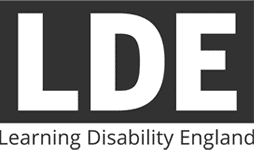Jayne Leeson, MBE – CEO Changing Our Lives
At any one time in England, there are 2000+ people with learning disabilities and autistic people living their lives in locked hospitals around England. We work with some of these individuals, getting to know them over time so we can understand the way they communicate and working closely with them, we develop a plan for the sort of life they would like beyond the hospital, and the sort of support they need. We work alongside some of these people until they are in their new home, providing a blend of advocacy, facilitation and challenge to professionals with the aim of ensuring the plan becomes a reality. As long as these individuals have good quality support, they go on to successfully live in their own homes.
This work, and other projects we’ve been involved with in the past, has taught us that there are undoubtably times when autistic people and people with learning disabilities experience mental health crises, and they need skilled support during this period to get themselves on track, and sometimes this support may need to come from a hospital. However, in our experience the vast majority of individuals end up in the hospital system because the support mechanisms that should have been operating around them to keep them safe and well in the community, have failed. Whilst we know and I would always want to acknowledge there are individual staff within the hospital system who go above and beyond to ensure the person with a learning disability or the autistic person is enabled to leave the hospital, we are painfully aware that the hospital and the social care systems are broken.
At every point in the system, there are fractures and breakages. Starting in childhood and adolescence, there are times when individuals and families receive very little support or inadequate support, and with this support lacking things escalate and before you know it your son or daughter is being treated miles away from home, in a locked ward, in an environment they are unfamiliar with and in itself which may bring further stress.
When the person gets into the hospital system itself, it’s a lottery; some places have good therapists and people make progress, however the majority of people we work with have limited opportunities for therapy. People are medicated and then clinicians wait to see if the medication has worked. In many instances, all clinicians see is the learning disability or autism and they fail to see the person as a whole. For example, we come across young women who have been sexually abused and need specialist counselling/therapy so they can work through their experience. A few of these young women receive specialist support for the abuse and trauma, many do not.
We undeniably get a sense of people with learning disabilities and autistic people being treated as ‘other’ or even sub-human. If you commit a crime and go to prison, you serve your sentence or less than your sentence and you can re-enter society a free individual. You are marked by your prison stay and may find it difficult to be accepted in employment but you are not locked up. If you have a learning disability or are autistic and you commit a crime, you may go to prison but you will more likely go to a locked hospital, sectioned with no end date. We have worked with individuals who have been sectioned for years in hospital, when often these people have committed petty crimes. We are not denying that there are some individuals who have been and will continue to be dangerous unless well supervised and supported, but is an indefinite stay in a locked environment the best solution?
In many situations, hospitals monitor people’s behaviours and use this to measure whether a person is ready for discharge. Whilst some behaviour may be harmful to others or self-injurious and needs to be kept an eye on, the majority of these behaviours need to be understood as part of the person and are not harmful. They may be soothing or stimulating, and will be repetitive and part of a person’s routine. For example, a person might flush the toilet over and over again, or post items down the back of radiators or under doors. They may or may not minimise over time and may increase during stress, however using behaviours such as these as a measure of discharge is punitive and illogical.
We also work with many people who have been ready for discharge for months and even years and due to poor commissioning or delays in the social care system, remain in a hospital bed. Put yourself in this situation – you are living in a locked ward, things you take for granted like a takeaway, your own TV remote, your own personal space are not part of your life. You have been told by the psychiatrist you are ready for discharge; you have complied with treatment regimes. You have done all you can. Your social worker arrives and either has no where for you to go, or there is a place and it falls through. Your social worker finds another place and this fall through. What do you think this would do to your mental health? Every day we are amazed by the resilience of people who are continually let down in this way and saddened by those who deteriorate as they can’t cope with any more time locked away.
Borne out frustration and a desire to gather robust evidence, for the past two years we have been working with the University of Birmingham on the Why are we stuck in hospital? research project. This project raises awareness of the 2,000+ people with learning disabilities and autistic people who find themselves trapped within locked hospital settings.
Wanting to bring these messages into the mainstream in a challenging way, we have been working with subversive Birmingham artist Foka Wolf and the contemporary art gallery, the Ikon. Foka has been described in many ways; he describes himself as a ‘multi award winning gobshite’; the Guardian describes him as a bill board prankster and the Ikon describe his work with ‘subvertisements’, which parody corporate and political posters.
Foka’s exhibition will appear at the Ikon from 7th to 19th March 2023. Alongside this exhibition Foka has a billboard campaign with posters on Floodgate Street (B5 5SR), Bradford Street (B12 0QY), York Road (B14 7RZ) and Bristol Road (B29 6BJ).
Speaking with Foka about this project, he was overwhelmed by people’s experiences in the 23rd century in what’s called a developed country:
“When I was told that I had been shortlisted to create work for this project I was thrilled, but also slightly nervous. Dealing with such serious subject matter can stop me in my tracks. I usually add lots of humour to my work, so even if it looks wrong or makes no sense I can usually fall back on the funny stuff. With this, I had nowhere to hide. Upon meeting Jayne and Lucy from Changing Our Lives I was absolutely gobsmacked and haunted by the case studies they were telling me about. I could not believe that people in a developed country were still treated like this. I couldn’t believe that I had never heard of this and I thought to myself – how many other people haven’t heard of this? Then I began to see the collaboration as a brilliant opportunity to communicate this message to others and spread the information through the use of art and spectacle. I have tried to be as informative as I can whilst staying true to the humans caught up in this mess.”
Sitting alongside Foka’s installation, Changing Our Lives has a small exhibition highlighting Matthew’s experience of locked hospitals. Matthew is an autistic man whose experiences offer a real life perspective on the question posed downstairs by Foka Wolf’s installation. Problems at home and a lack of support with his autism during his adolescence led to Matthew regularly committing petty crimes. Repeat offences resulted in Matthew being sectioned at 17 and sent to a locked ward miles from home. Matthew spent the next 16 years living in locked hospital settings, away from family and deprived of his liberty — circumstances which could have been avoided entirely, had he been properly supported. Now living happily in his own home with the help of support workers and family, Matthew’s life is not only a testament to what can be achieved when the right support is put in place, but a poignant reflection of the barriers people face when trying to leave hospital, as well as a lesson in the preventability and injustice of these experiences.





